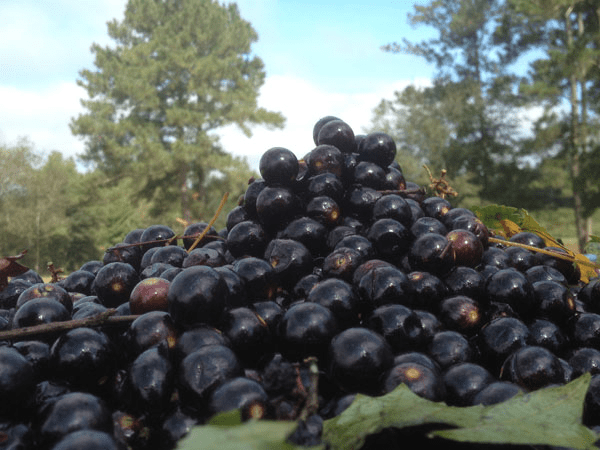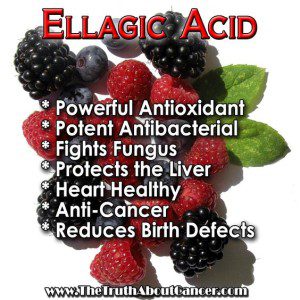Ellagic Acid….what is it?

It’s crazy living in the time that we are. There is so much information available to us. It can get very confusing.
I was talking with my friend Steve and he introduced me to Ellagic Acid. I had never heard of it before, but he had done some research because of his own heath issues. Specifically, he was interested in the ability of Ellagic Acid to reduce fat cells around organs.
But Ellagic Acid can do even more!
Health Benefits of Ellagic Acid
Ellagic acid has antioxidant, anti-mutagen and anti-cancer properties. Studies have shown the anti-cancer activity on cancer cells of the breast, oesophagus, skin, colon, prostate and pancreas. More specifically, ellagic acid prevents the destruction of P53 gene by cancer cells. Ellagic acid can bind with cancer causing molecules, thereby making them inactive. In their studies The effects of dietary ellagic acid on rat hepatic and esophageal mucosal cytochromes P450 and phase II enzymes. Ahn D et al showed that ellagic acid causes a decrease in total hepatic mucosal cytochromes and an increase in some hepatic phase II enzyme activities, thereby enhancing the ability of the target tissues to detoxify the reactive intermediates. Ellagic acid showed also a chemoprotective effect against various chemically induced cancers.
A study by Thresiamma KC and Kuttan R.Indian (Indian Journal Physiology and Pharmacology, 1996 October) indicate that oral administration of ellagic acid by rats can circumvent the carbon tetrachloride toxicity and subsequent fibrosis of the liver.
That’s a lot of big words to say that studies are showing that ellagic acid may help to sop the growth of certain types of cancers as well as healing ulcers, contributing to weight loss and helping to treat Crohn’s Disease. All of these studies have been done on rats.
Ellagic acid has also antiviral and antibacterial activities.
Most studies show pomegranate as the source of Ellagic Acid, however it can be found in many red fruits and berries, including raspberries, strawberries, blackberries, cranberries, pomegranate and some nuts including pecans and walnuts. The highest levels of ellagic acid are found in raspberries. It can also be found in grapes, with Muscadine grapes having the highest concentration.
Though long a favorite of southerners for their sweet, fruity taste (muscadines make a delicious, nutritious snack straight from nature), recent research reveals that muscadines contain high levels of resveratrol. Resveratrol is one of the compounds in red wine which is believed to help reduce the risk of abnormal cells and heart disease. Muscadines are high in vitamin C and ellagic acid. Muscadines also contain potassium, vitamin B, and trace minerals.
There are both red and white wines that use the Muscadine grapes. But if you do not drink alcohol, the grape juices made from these grapes also are packed with ellagic acid. Or you could just eat the berries and fruits and nuts listed earlier in this blog.











